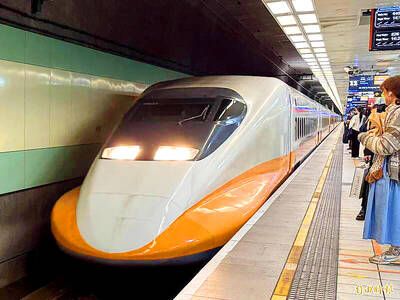The three major causes of worker deaths are cancer, accidental injury and heart disease, while the construction, fishing and agricultural industries have the highest mortality rates, a new study by the Institute of Occupational Safety and Health found.
The study found that cancer ranked first among the causes of death for both the overall population and the working population, while the second most common cause of death for workers was accidental injury, but for the general public it was heart disease.
Liver cancer, lung cancer and oral cancer were among most common, in that order. Liver and lung cancer mostly afflict workers in the construction and fishing industries, while oral cancer, which can be caused by chewing betel nuts, appears mostly in the transportation and construction sectors.
Many workers in these isectors are required to work long hours and use betel nuts or cigarettes to help them stay awake, the study said. In addition, many workers in the sectors have habits that could cause lung or liver cancer, such as drinking alcohol, smoking and staying up late at night or sleeping too little.
The study also shows that women who work in shifts and therefore suffer from interrupted sleeping patterns are at risk of low levels of urinary melatonin, which can contribute to high rates of breast cancer.
To lower the risk of breast cancer and other diseases that might be caused by irregular sleeping patterns, the study recommended employers minimize the adverse effects of 24-hour shifts by doing more to educate employees about improving sleep quality.
When compared across age groups, the most common cause of death in workers aged 20 to 34 was accidental injury, while cancer took the lead in all age groups over 35.
Although the major causes of death for workers was basically unchanged from 2007 to 2008, the mortality rate dropped.

The inspection equipment and data transmission system for new robotic dogs that Taipei is planning to use for sidewalk patrols were developed by a Taiwanese company, the city’s New Construction Office said today, dismissing concerns that the China-made robots could pose a security risk. The city is bringing in smart robotic dogs to help with sidewalk inspections, Taipei Deputy Mayor Lee Ssu-chuan (李四川) said on Facebook. Equipped with a panoramic surveillance system, the robots would be able to automatically flag problems and easily navigate narrow sidewalks, making inspections faster and more accurate, Lee said. By collecting more accurate data, they would help Taipei

TAKING STOCK: The USMC is rebuilding a once-abandoned airfield in Palau to support large-scale ground operations as China’s missile range grows, Naval News reported The US Marine Corps (USMC) is considering new sites for stockpiling equipment in the West Pacific to harden military supply chains and enhance mobility across the Indo-Pacific region, US-based Naval News reported on Saturday. The proposed sites in Palau — one of Taiwan’s diplomatic allies — and Australia would enable a “rapid standup of stored equipment within a year” of the program’s approval, the report said, citing documents published by the USMC last month. In Palau, the service is rebuilding a formerly abandoned World War II-era airfield and establishing ancillary structures to support large-scale ground operations “as China’s missile range and magazine

A 72-year-old man in Kaohsiung was sentenced to 40 days in jail after he was found having sex with a 67-year-old woman under a slide in a public park on Sunday afternoon. At 3pm on Sunday, a mother surnamed Liang (梁) was with her child at a neighborhood park when they found the man, surnamed Tsai (蔡), and woman, surnamed Huang (黃), underneath the slide. Liang took her child away from the scene, took photographs of the two and called the police, who arrived and arrested the couple. During questioning, Tsai told police that he had met Huang that day and offered to

BETTER SERVICE QUALITY: From Nov. 10, tickets with reserved seats would only be valid for the date, train and route specified on the ticket, THSRC said Starting on Nov. 10, high-speed rail passengers with reserved seats would be required to exchange their tickets to board an earlier train. Passengers with reserved seats on a specific train are currently allowed to board earlier trains on the same day and sit in non-reserved cars, but as this is happening increasingly often, and affecting quality of travel and ticket sales, Taiwan High-Speed Rail Corp (THSRC) announced that it would be canceling the policy on Nov. 10. It is one of several new measures launched by THSRC chairman Shih Che (史哲) to improve the quality of service, it said. The company also said